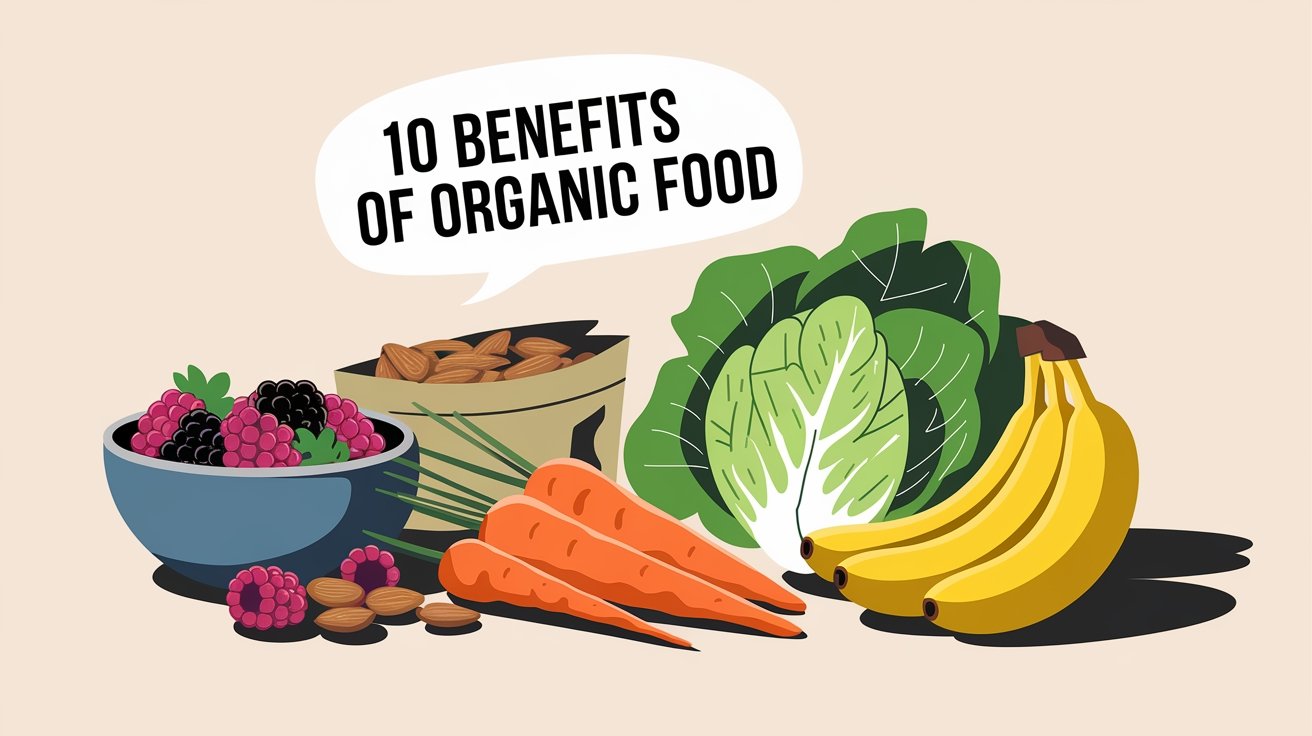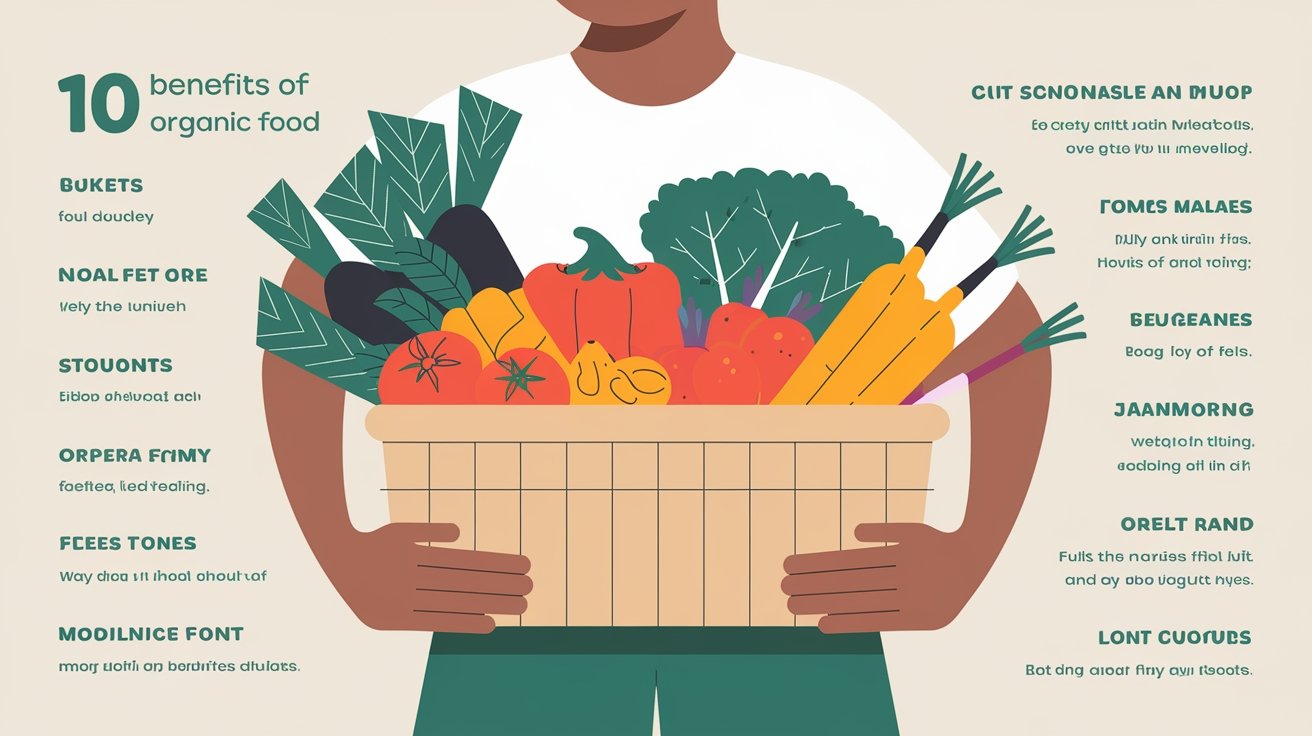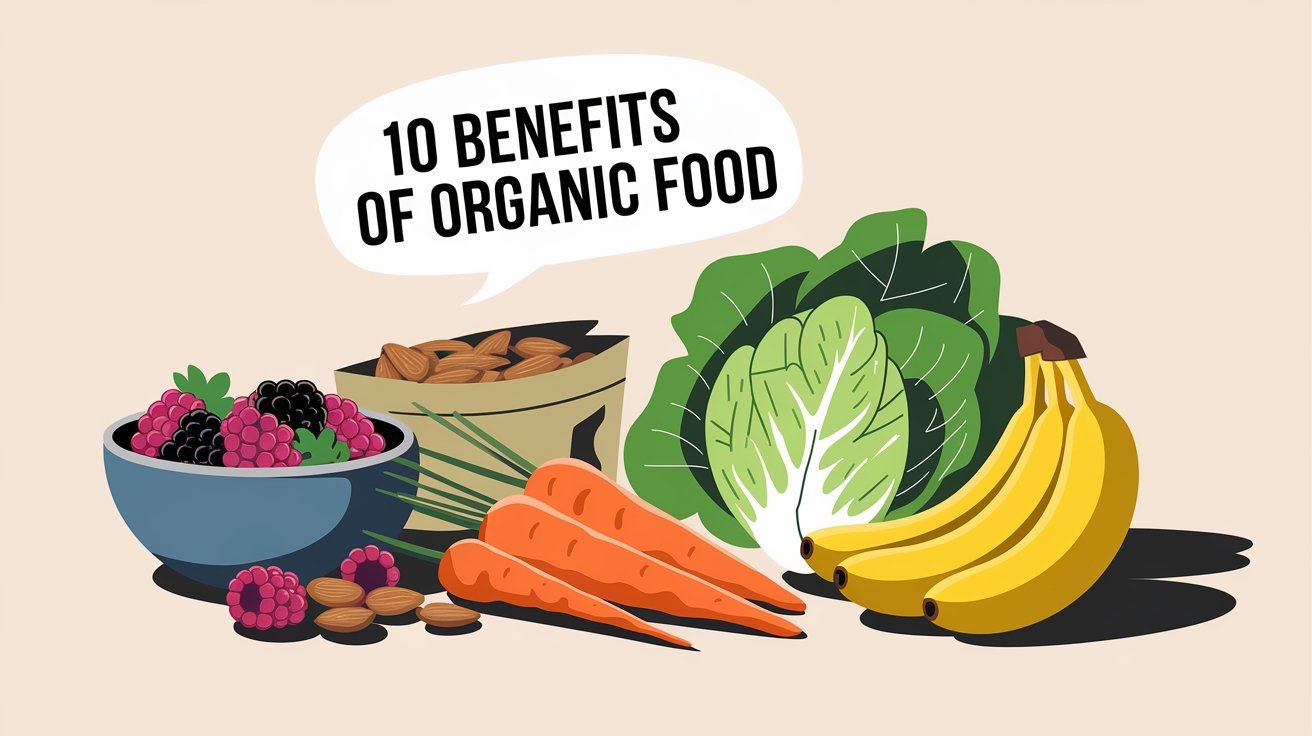As people become more health-conscious, the shift towards healthier lifestyles includes a growing interest in organic food. With its promise of purity, fewer chemicals, and greater nutritional value, organic food is quickly becoming a top choice for those looking to improve their health and well-being. In this article, we’ll explore the 10 benefits of organic food that make it such a popular option.

1. Fewer Pesticides and Chemicals
One of the most well-known benefits of organic food is the significant reduction in harmful pesticides and chemicals. Unlike conventionally grown crops, organic foods are cultivated without synthetic pesticides and herbicides. This means when you choose organic, you’re reducing your exposure to harmful chemicals. With the absence of these toxic substances, organic food not only supports better health but also protects the environment from chemical runoff.

2. Enhanced Nutritional Value
Organic food is often richer in nutrients than its non-organic counterparts. Research has shown that organic fruits, vegetables, and grains tend to have higher levels of vitamins, minerals, and antioxidants. The 10 benefits of organic food clearly highlight the superior nutritional content, giving you more of what your body needs. For anyone looking to maximize the nutrient intake from their meals, organic food offers a noticeable advantage.
3. Better for the Environment
Choosing organic food isn’t just beneficial for your health; it’s also a way to support a healthier planet. Organic farming practices focus on sustainability and aim to reduce pollution, conserve water, and improve soil quality. By cutting out synthetic fertilizers and pesticides, organic farms help protect local ecosystems, promoting biodiversity and reducing carbon footprints. The environmental benefits of organic food make it a responsible choice for conscious consumers.

4. Supports Animal Welfare
When it comes to organic meat, poultry, and dairy products, animal welfare is a top priority. Animals raised on organic farms are given access to outdoor spaces and are not treated with antibiotics or growth hormones. The 10 benefits of organic food extend to ethical considerations, as organic farming ensures animals live in healthier, more humane conditions. This means you’re not only eating food that’s good for you but also supporting more humane farming practices.
5. No Genetically Modified Organisms (GMOs)
Another benefit of organic food is that it is GMO-free. Organic farming prohibits the use of genetically modified organisms, which are common in many conventional food products. By avoiding GMOs, organic food provides consumers with a cleaner, more natural choice. For those concerned about the long-term effects of GMOs on human health and the environment, organic food offers a reassuring alternative.

6. Fresher Taste and Better Flavor
Many people find that organic food simply tastes better. Without the use of artificial preservatives and chemicals, organic produce is often fresher and more flavorful. Organic fruits and vegetables are typically harvested at their peak ripeness, ensuring they deliver the maximum taste. The enhanced taste and quality are among the 10 benefits of organic food that keep consumers coming back for more.
7. Reduces Risk of Antibiotic Resistance
In conventional farming, animals are often treated with antibiotics to promote growth and prevent disease. However, this practice contributes to the growing problem of antibiotic resistance in humans. One of the important benefits of organic food is that organic farming avoids the use of antibiotics, reducing the risk of developing antibiotic-resistant bacteria. This not only supports your health but also addresses a larger public health concern.
8. Supports Local Farmers and Communities
When you buy organic food, you are often supporting small, local farmers who prioritize sustainable and ethical farming practices. Organic farms tend to be smaller operations compared to large-scale industrial farms, so choosing organic means helping these farmers thrive. One of the most rewarding 10 benefits of organic food is the opportunity to contribute to local economies and foster stronger connections between food producers and consumers.

9. Fewer Additives and Preservatives
Organic food tends to be free from artificial additives and preservatives, which are commonly found in processed, non-organic foods. These substances can have harmful effects on your health over time. By eating organic, you can significantly reduce your intake of artificial ingredients. Among the 10 benefits of organic food, the absence of these unwanted additives is a major plus for those seeking a cleaner, more wholesome diet.
10. Promotes Healthier Soil and Ecosystems
Organic farming promotes healthier soil, which in turn supports healthier ecosystems. Through techniques like crop rotation, composting, and natural fertilizers, organic farms maintain nutrient-rich soil that can sustain crops for generations to come. The 10 benefits of organic food include the crucial role it plays in fostering sustainable agriculture that benefits both people and the planet.
Conclusion

The 10 benefits of organic food clearly show why it’s becoming a top choice for health-conscious consumers. From better nutrition to a lower environmental impact, organic food offers advantages that go beyond just what’s on your plate. Whether you’re looking to improve your own health, support local farmers, or make more environmentally responsible choices, organic food is a powerful way to achieve these goals.

